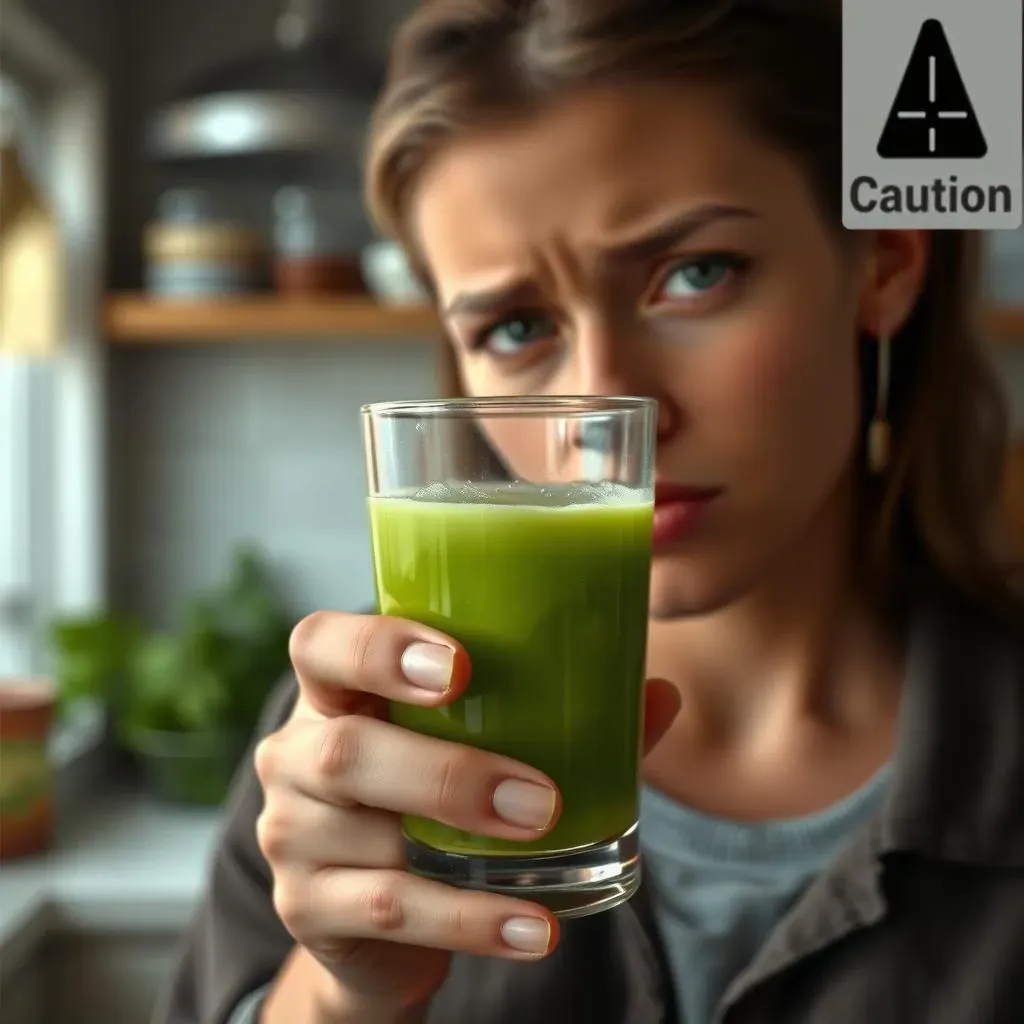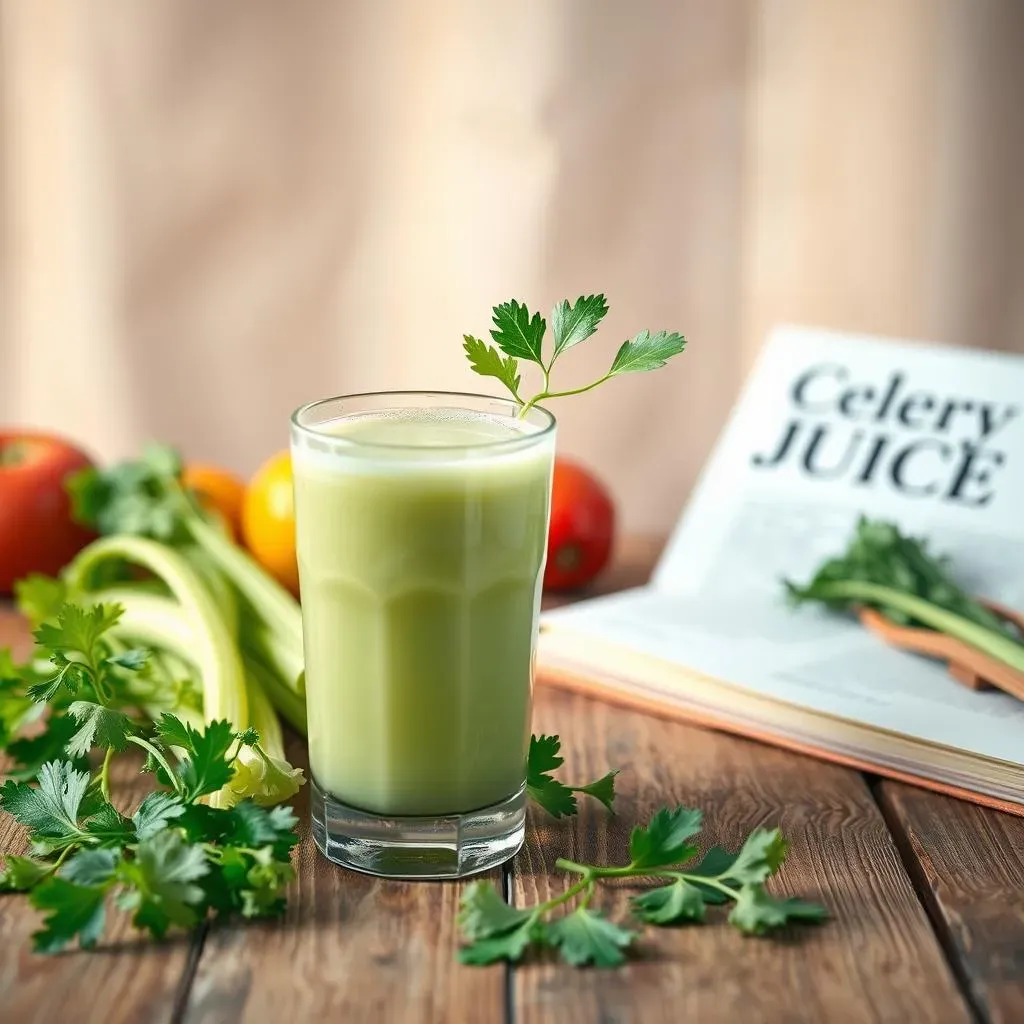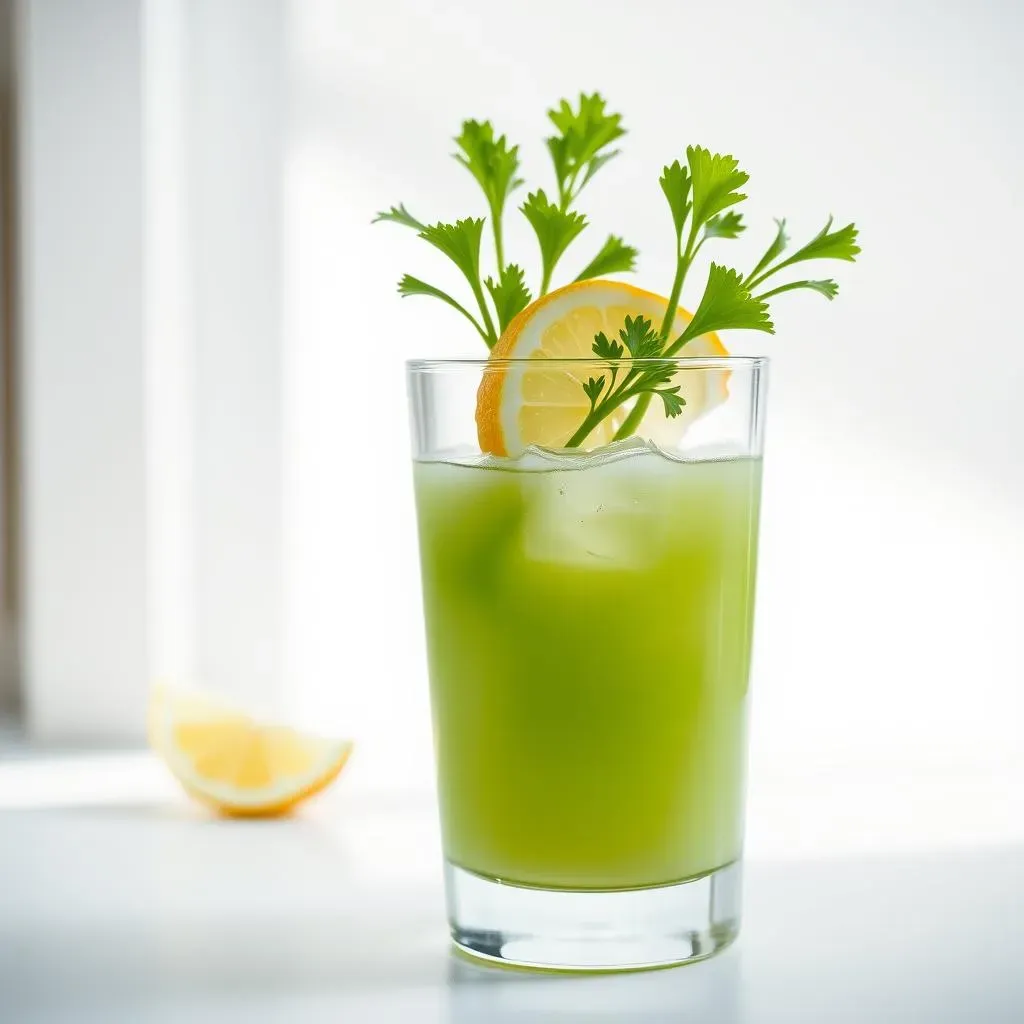Table of Contents
Lately, it seems like everyone's talking about celery juice. You've probably seen the posts, heard the claims – glowing skin, boosted energy, and the big one: "does celery juice detox the body?" It's tempting to jump on the bandwagon, especially when promises of a quick cleanse are swirling around. But before you start guzzling gallons of green juice, let's take a step back. This article isn't about blindly following trends. We're going to cut through the hype and look at what science actually says about celery juice and its supposed detox abilities. We'll explore the potential benefits, the possible risks, and how to make this trendy drink if you decide to try it. Forget the miracle promises; we're here for the real story, the facts, and a bit of humor along the way. So, buckle up, grab a glass of something (maybe not celery juice just yet), and let’s get started.
What's the Deal with Celery Juice and Detox?

What's the Deal with Celery Juice and Detox?
The Buzz Around Celery Juice
Okay, so you've probably heard the whispers, maybe even the shouts, about celery juice being the next big thing in health. It's everywhere – social media, health blogs, even your neighbor's kitchen counter. The big claim? That it's some kind of magic potion for detoxing your body. But what does that even mean? "Detox" is a pretty vague term, often thrown around without much scientific backing. It usually implies that your body needs help getting rid of "toxins," which, let's be honest, sounds kinda scary. But your body already has a pretty amazing system for that. Your liver, kidneys, and even your skin work hard every day to filter out the bad stuff. So, is celery juice really needed, or is it just a clever marketing ploy?
What "Detox" Actually Means
The idea behind a "detox" is that our modern lives fill us with nasty things that our bodies can't handle alone. We're talking about processed foods, pollution, and all that stress we carry around. Celery juice proponents claim it can help the body get rid of these supposed toxins, leading to clearer skin, better digestion, and more energy. But here's the kicker: there's not a whole lot of actual science to back this up. Most of the claims are based on anecdotal evidence, meaning people's personal stories, which, while interesting, aren't the same as cold, hard facts. Your body is already a finely tuned detox machine, so the need for extra help is questionable.
Body Part | Detox Function |
|---|---|
Liver | Filters blood and breaks down toxins |
Kidneys | Removes waste through urine |
Skin | Sweats out toxins |
The Celery Connection
Now, don't get me wrong, celery itself is a decent veggie. It's low in calories, has some vitamins and minerals, and is mostly water, so it's hydrating. But when we juice it, we're removing the fiber, which is actually one of the best parts of eating a vegetable. Fiber helps with digestion and keeps you feeling full. So, while you might be getting a concentrated dose of some nutrients, you're also missing out on the benefits of eating the whole plant. The "detox" aspect? Well, that's still up for debate. It’s more likely that any perceived detox benefit is due to the increased water intake rather than some magical property of the celery itself.
Is a Celery Juice Cleanse Safe? Risks to Consider

Is a Celery Juice Cleanse Safe? Risks to Consider
The Dark Side of Cleanses
Alright, so you're thinking about going full-on celery juice cleanse? Before you dive headfirst, let's talk about the potential downsides. While some folks swear by these cleanses, they're not without risks. The main issue is that a juice cleanse, especially one focused solely on celery, is super restrictive. You're basically cutting out a lot of essential nutrients your body needs. Imagine trying to build a house with only one type of brick – it's just not gonna work. Your body needs a variety of vitamins, minerals, and macronutrients to function properly. A celery juice cleanse could leave you feeling weak, tired, and frankly, pretty miserable.
Oxalates and Other Concerns
Another thing to be aware of is that celery contains oxalates. Now, oxalates aren't inherently bad, but in large amounts, they can cause problems, especially for your kidneys. If you have a history of kidney stones, chugging down a ton of celery juice might not be the best idea. Also, because you're drinking so much juice on an empty stomach, some people experience digestive issues like bloating, gas, or even diarrhea. And let’s not forget, celery can sometimes cause allergic reactions in some people. It's like playing Russian roulette with your gut. So, if you do try it, start slow, and pay attention to how your body reacts. It's better to be safe than sorry.
- Kidney Stones: High oxalate intake can increase the risk.
- Digestive Issues: Bloating, gas, and diarrhea are common.
- Allergic Reactions: Some people are allergic to celery.
The Real "Detox" Effect
Here's the thing: that "detox" feeling some people get from cleanses isn't necessarily because the juice is magically removing toxins. It's more likely due to the fact you're drinking a lot of water, which can make you pee more often and feel lighter. It's also because you're cutting out processed foods and sugars, so your body is probably just relieved. But that doesn't mean it's a deep cleanse. Your body is already doing a pretty good job of cleaning itself. Plus, the weight loss you might see during a cleanse is usually just water weight and will likely come back as soon as you start eating normally again. So, don’t get fooled by the quick fixes. It's often more about what you *aren't* eating than what you *are*.
The Truth About Celery Juice: Benefits Beyond Detox

The Truth About Celery Juice: Benefits Beyond Detox
Hydration Hero
Okay, so maybe celery juice isn't a magical detox potion, but that doesn’t mean it's totally useless. One of the biggest benefits of celery juice is simple: hydration. Celery is mostly water, and when you juice it, you're essentially creating a super-hydrating beverage. Staying well-hydrated is crucial for all sorts of bodily functions, from keeping your skin looking good to helping your digestion run smoothly. If you struggle to drink enough water throughout the day, celery juice could be a tasty way to boost your fluid intake. It's not a miracle, but it's a solid perk.
Vitamins and Minerals
Celery juice also contains some vitamins and minerals, although it's not a nutritional powerhouse. You'll find some vitamin K, which is important for blood clotting, and some potassium, which helps with blood pressure. It also has some antioxidants, which can help protect your cells from damage. Now, don't go expecting to get all your daily nutrients from a glass of celery juice. It's more of a supplementary thing. Think of it like adding a little extra boost to your day. The best way to get all the vitamins and minerals you need is still through a balanced diet with lots of fruits, veggies, and whole foods.
Nutrient | Benefit |
|---|---|
Vitamin K | Blood clotting |
Potassium | Blood pressure regulation |
Antioxidants | Cell protection |
A Gentle Digestive Aid
Some people find that celery juice can be a gentle aid for digestion. It’s thought that the high water content can help soften stools and keep things moving. If you’ve ever struggled with constipation, a bit of celery juice might be worth trying. It's not a cure-all, but it can be a mild way to encourage regularity. However, it's important to note that what works for one person might not work for another. So, if you try it and you’re not feeling great, don’t force it. Listen to your body and do what feels right for you. After all, your gut is smarter than you think!
How to Make Celery Juice and What to Expect

How to Make Celery Juice and What to Expect
The Simple Steps to Celery Juice
Alright, so you're curious enough to try making celery juice? It's actually pretty straightforward. First, you'll need a bunch of celery – about one large bunch should do it. Wash it thoroughly to get rid of any dirt or pesticides. Then, chop the celery into smaller pieces so they fit easily into your juicer. If you don't have a juicer, no worries, you can use a blender, but you'll need to strain the pulp afterwards. Simply blend the celery with a little water to help it get going, then strain the mixture through a fine-mesh sieve or a cheesecloth. And that's it! Fresh celery juice, ready to go. It's best to drink it right away for maximum freshness and nutrient retention. Don't worry if it looks a bit murky – that's totally normal.
What to Expect When You Drink It
Now, let's talk about what you might experience after you drink your celery juice. First off, the taste might take some getting used to. It's not exactly a sweet treat. Some people describe it as slightly salty, a little bitter, and definitely vegetal. If the taste is too much, you can add a squeeze of lemon or a small piece of ginger to make it more palatable. As for the effects, well, it varies from person to person. Some people report feeling more energized, while others don't notice any major changes. You might experience a mild diuretic effect (meaning you'll pee more), which is normal due to the high water content. And as we discussed earlier, that "detox" feeling might just be your body processing more fluids and less processed junk. Don't expect any overnight miracles, just be patient and see how your body responds. And most importantly, listen to your body.